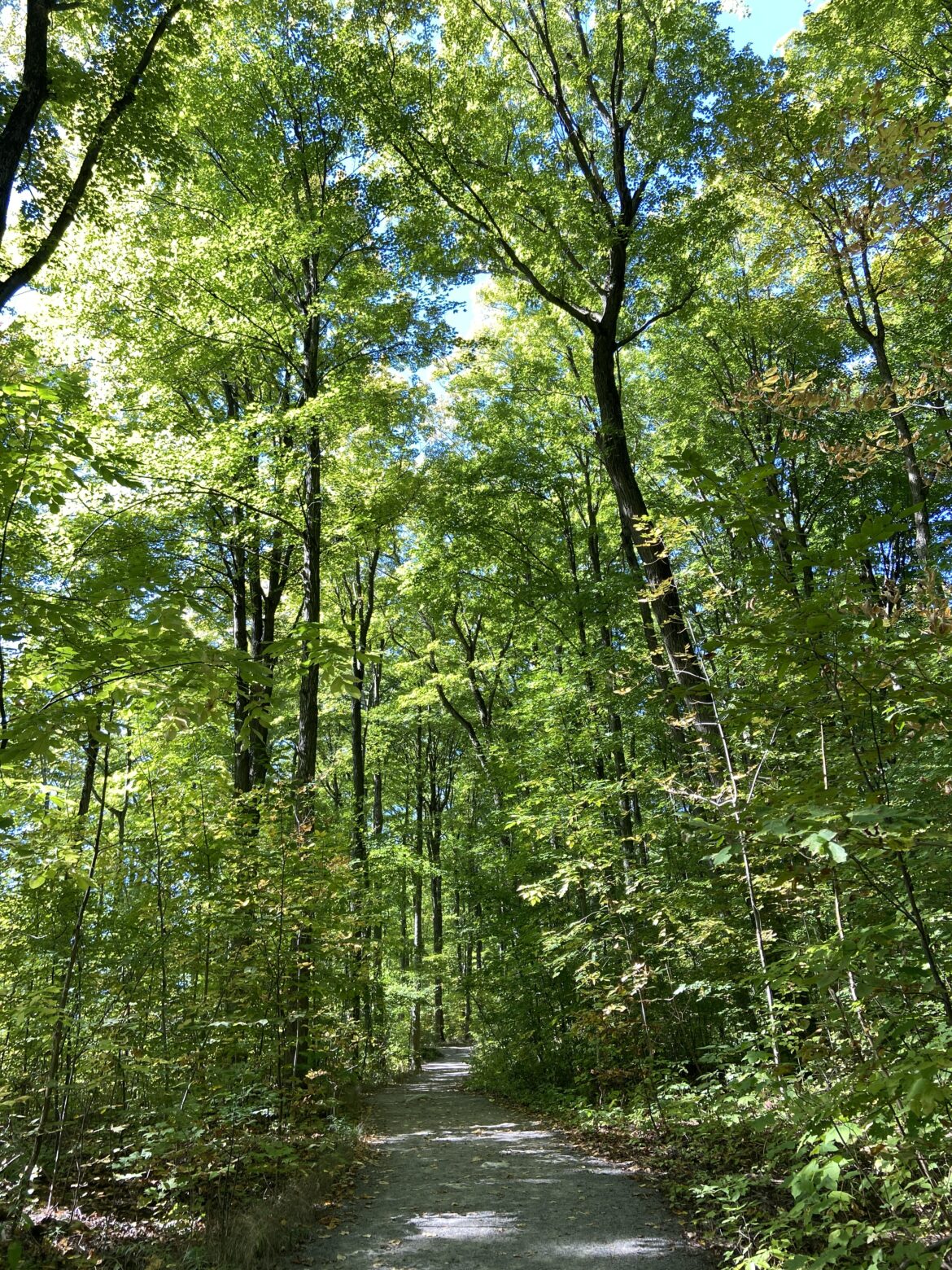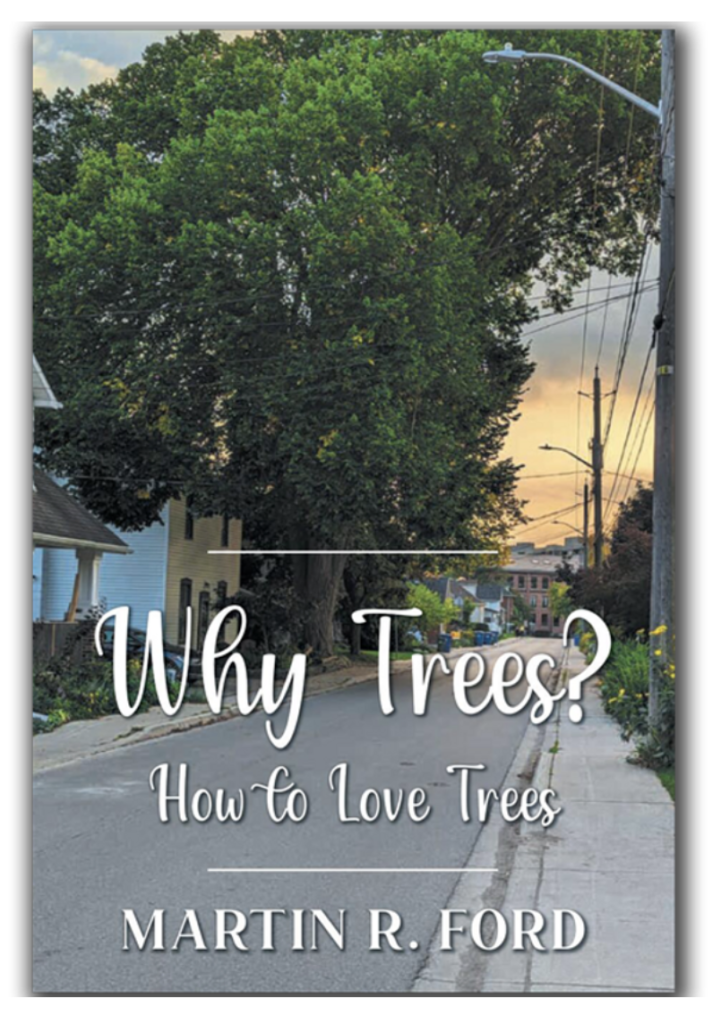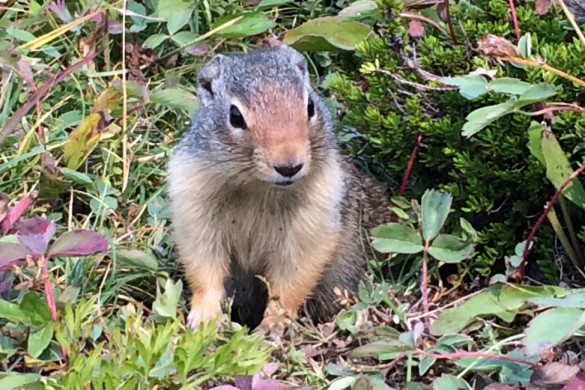A chainsaw. Again. Its noise fills the air on an otherwise beautiful Saturday morning, as I step out into the backyard to have a cup of coffee in the early October sun.
Another tree going down in the neighbourhood. What is it this time, I wonder?
Is someone making way for another swimming pool, a bigger house, or is it another honey locust going down because the homeowners find all those little orange leaves “too messy” in the fall?
Back inside, I turn to the newspaper (yes, we’re old school on the weekend), to learn that 800+ trees were cut down on the west island of Ontario Place, sacrificed for a massive foreign-owned resort spa on these public lands.
It make you wonder. About priorities. About disconnection from nature. About the future.
Why trees? Let’s count the reasons…
A new book by Guelph-based horticulturalist Martin Ford is a bright spot in the gloom, a testament to the wonder and the importance of trees.
Why Trees? How to love trees is “dedicated to all people living in cities.”
Martin writes of the many benefits of trees — including for our physical and mental health — and what trees need to be healthy and grow alongside us in our communities.
Trees are climate heroes — they pump out oxygen so we can breathe; they shade us, cooling the earth and our homes; they shelter and feed birds, bees, butterflies, mammals; they soak up rainwater and help send it deep into the earth instead of cascading into roadways and basements.
And they do more: they beautify our surroundings, softening the hard, human-made edges, their presence and movement helping us to instinctively relax, breathe and be.
Into the forest at Rattlesnake Point
An afternoon in the company of trees at Rattlesnake Point is a welcome respite from the sound of chainsaws at home.
We wander along a section of the Bruce Trail and intersecting loops in this Conservation Halton park along the Niagara Escarpment among 800-year-old cedars, towering oaks, maples, beech and hemlocks, with the crunch of acorns under foot.
It’s both a refuge and a reminder of what is lost, piece by piece, tree by tree, as we bend the environment to our will.
And at the same time, the young saplings stretching for the light along the trail are a tangible sign of hope, of regeneration and renewal.
Each of us can make a difference by simply planting a tree — on our own property or in our community, and by leaving the leaves in the fall to nurture new life.
One of the things I love about Martin’s book is that each section opens with a quote about trees, including this one from conservationist and ecologist Aldo Leopold:
“Acts of creation are ordinarily reserved for gods and poets, but humbler folk may circumvent this restriction if they know how. To plant a pine, for example, one need be neither god nor poet; one need only own a shovel.”
Thanks for reading. Enjoy your day,
— Stacey



